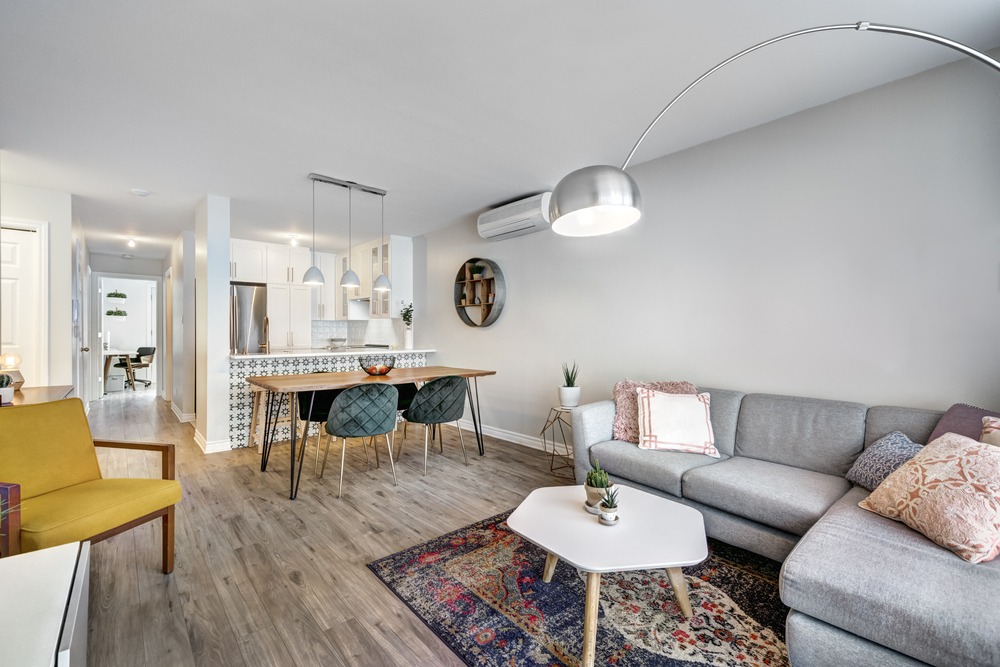The Covid conundrum seems to be stifling the co-living sector in India again. The sector finds itself in a situation again where there is no certainty as to whether the pandemic will prove to be a boon or bane for its future growth. Square Yards takes a look at both sides of the coin to figure out if Co-living will survive the ongoing second wave and the speculated third wave.
The idea of co-living is not new but this model is gaining traction because it unlocks the benefits of affordability, comfort, convenience and instills a greater sense of social belonging. It is a modern form of residential community living that offers shared housing for people with similar values and interests. However, the pandemic has deeply impacted the co-living model and has brought this sector to a grinding halt. Moreover, with the return of working professionals to their respective hometowns during the lockdown, it is uncertain when the co-living model will once again gain traction in India. With social distancing being the norm, more than ever developers would need to focus on the cleanliness and hygiene aspect of the co-living spaces to promote this model during trying times. They have to implement temperature screenings at the entrance and adopt standardised and stringent hygiene practices like frequent deep cleaning and sanitization of the space.

On the other hand, the pandemic has undeniably produced an alarming increase in loneliness, and the feeling of social isolation is on an unprecedented rise. Thus, amidst a pandemic, co-living kicks in as it promotes a social setup where people can live with each other, interact and make new connections. In a nutshell, it helps people to stay away from the problem of solitude and seclusion. Moreover, every possible amenity is provided to the tenants under this co-living roof. Be it food, laundry services or recreation, all facilities that we are struggling to cope with while being locked-down, are offered in a co-living set up. It offers comfort and time to socialize without constantly distressing about the responsibilities.
However, with the whole concept of socializing undergoing drastic changes, thanks to the pandemic, will Co-Living survive as a business model? The plight of the co-living model has got even working professionals and realty developers pondering as to whether COVID-19 is a boon or bane for the sector. At this juncture, even second-guessing takes backstage as a rosy picture blurs our vision. No one really knows how the future will unfold, especially when there is speculation of a third wave hitting India.
| Benefits Of Co-Living |
| Co-Living is affordable and it is the best alternative to pare down your rental spending. Moreover, millennials and Gen-Z do not have to haggle with brokers to find budget-friendly apartments. |
| Co-Living is convenient as you do not have to worry about home administration and maintenance. |
| Co-Living offers flexibility as you are not bound to commit to a long-term lease. |
| Co-living is an alternative to conventional rental apartments as it offers a better-managed system with added comfort and facilities and lesser rules and regulations. |
| Co-living gives millennials access to added amenities such as comfortable and furnished rooms, housekeeping services, high-speed Internet connection and three to four good quality meals in a day. |
Is COVID-19 a Boon or Bane for Co-Living Sector
There is no secret that millennials were the driving force behind the astronomic boom of the co-living sector from 2018-2020. However, the growth trajectory took a beating when COVID hit in 2020. Nonetheless, unlike the industry expectations, the negative impact was short lived. As the lockdown was announced without any warnings, many professionals were stuck in the city of their work. At that juncture migrating back to their hometowns seemed a far sight. As the plight of rented PG accommodations and shared apartments seemed horrible, people wanted to shift to a safer and cleaner place where they can get access to all the amenities under one roof. Amidst the lockdown, people shifted to co-living spaces with only a suitcase in hand as all the amenities right from food to furniture was provided in these meticulously designed co-living spaces. And thus, COVID proved to be a blessing in disguise for the sector back in 2020.

Slowly and steadily when restrictions on the lockdown were lifted and work-from-home seemed to be a long-term thing, working professionals made up their minds to return back to their native places. Still, in 2020, the co-living sector somehow survived and managed to stay afloat. However, with the second wave hitting the country, the co-living model is again faced with a dilemma. A large chunk of the potential client base for co-living had already moved back to their hometowns. Add to it the fact that in the absence of a nationwide lockdown, unlike 2020, people had the time to relocate when the second wave hit.
With the new mutations being called more potent and contagious, shared accommodations might seem like a far cry.
Thus, while there was a time when COVID-19 was a blessing in disguise for the co-living model, the second wave seems to have altered the dynamics of the sector completely. With a speculated third wave, the fate of the co-living sector seems very uncertain. A faster recovery rate is expected for the co-living sector than PGs/hostels as they are safer and well developed. As of now we can only wait and watch as to how the future months unfold for the Co-living sector.




